Specifically, aiming at key areas in the technology era; at the same time creating the premise to carry out the key task of the 2025-2026 school year of promoting and improving the quality of STEM education .
Many positive changes
At the second meeting of the National Steering Committee on Semiconductor Industry Development, Permanent Deputy Minister of Education and Training Pham Ngoc Thuong said that enrollment in STEM (Science, Technology, Engineering and Mathematics) and semiconductor fields has recorded a clear improvement.
In 2025, the number of first-choice registrations for these majors will reach 222,454, an increase of 41,881 compared to the previous year. In the Computer Science and Information Technology group alone, 54,359 candidates will register for their first choice, an increase of nearly 2,200 candidates compared to the first round in 2024. Notably, the Artificial Intelligence (AI) industry continues to create strong attraction with more than 2,700 candidates registering, far exceeding the number of the previous year.
According to the Deputy Minister, these signals show that the trend of choosing majors related to the semiconductor industry is becoming increasingly clear, reflecting the growing interest of society in the field of cutting-edge technology. The Ministry of Education and Training is coordinating with universities and businesses at home and abroad to organize seminars and forums, creating a space for exchanging experiences on semiconductor chips and human resource training.
Along with that, the Ministry has guided higher education institutions to develop projects to establish basic semiconductor laboratories to serve training. To date, 9 training institutions have completed the projects and sent them to the Ministry. These proposals were compiled and transferred to the Ministry of Planning and Investment (now the Ministry of Finance), where an Appraisal Council was established for detailed assessment.
In addition, the Ministry of Education and Training also requires schools to develop a project to train highly qualified human resources for the semiconductor industry, closely following Decision 1017/QD-TTg. Specific guidelines have been issued, ensuring transparency and consistency in implementation.
In particular, on May 13, 2025, the Ministry of Education and Training officially issued the standard training program on semiconductor microchips. This is an important step to unify and standardize the content and quality of training in the entire industry. The Ministry is directing universities to review and adjust programs and projects to implement according to Decision 1017/QD-TTg of the Prime Minister.
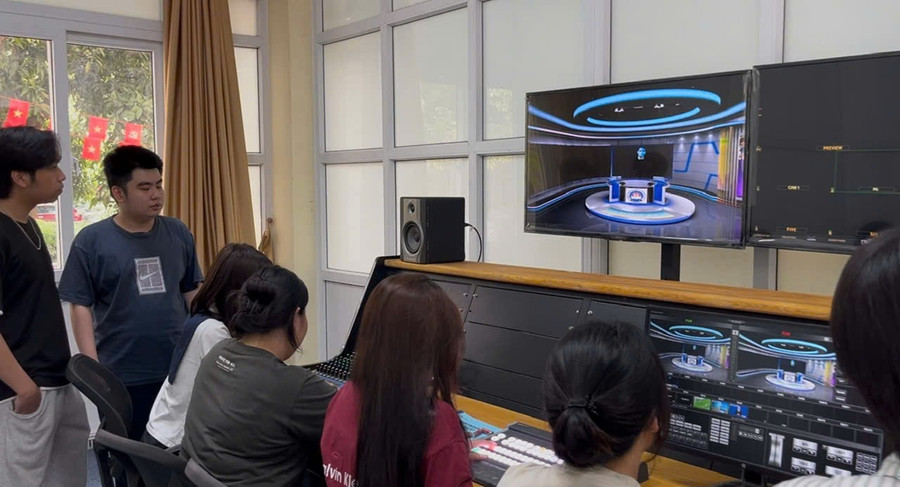
Turn trends into driving forces
Besides the initial results, Deputy Minister Pham Ngoc Thuong said that the Ministry of Education and Training recognized that there are still many difficulties, especially the uneven capacity and experience in semiconductor training at many facilities, the lack of an academic ecosystem, technology and extensive international cooperation.
To overcome this, the Ministry proposes to strengthen international cooperation in program development, sending lecturers and students to exchange and learn from experiences from advanced countries. At the same time, there should be a coordination mechanism between domestic schools to avoid resource dispersion, gradually forming a stronger and more effective training ecosystem for the semiconductor industry.
From the above analysis and based on the 2025 enrollment results, Dr. Do Viet Tuan - Head of the Faculty of Information Technology and Communication (Academy of Educational Management) realized that the attraction of STEM majors is increasingly evident. Thereby, affirming the increasing awareness of society about the role of STEM in the digital age and the development of the semiconductor industry and artificial intelligence.
Emphasizing that the Education sector has identified the key task of the 2025-2026 school year as promoting and improving the quality of STEM education, Dr. Do Viet Tuan said that this does not stop at expanding the scale of enrollment, but more importantly, it is necessary to innovate content and teaching methods, enhance practical experience and link training with the actual needs of the labor market. STEM requires a smooth combination of academic knowledge and applied skills, between logical thinking and creativity, so the training program needs to aim at comprehensive development for learners.
Vietnam faces many opportunities and challenges in the digital age, when science, technology, innovation and digital transformation become inevitable and rapidly developing trends.
In that context, Mr. Do Tien Thinh - Deputy Director of the National Innovation Center said that building a generation of Vietnamese human resources ready for the future, equipped with innovative thinking, technological skills and the ability to adapt to the digital economy is of particular importance. Therefore, promoting STEM education is being identified by many countries, including Vietnam, as one of the key solutions to improve high-quality human resources in the future.
Commenting that technology is developing at such a fast pace that in the next 5 years, STEM industries will have innovations that are currently difficult to imagine, Mr. Ian Crichton - CEO of Study Group emphasized that Vietnam has a great advantage when more than 60% of the population is under 30 years old, fluent in English and knowledgeable about technology. Software and other technology industries are developing thanks to youth, a culture of innovation and the ability to apply knowledge into practice.
Mr. Ian Crichton assessed that Vietnam's technology industry is growing strongly thanks to the demand for ICT infrastructure, support from the Government and a young, educated workforce. "A country once associated with agriculture and manufacturing, is now emerging with industries such as: Telecommunications, smart cities, cybersecurity and digital transformation. However, technology may change, but success still depends on people. An excellent education not only imparts knowledge but also develops skills to apply in practice.
According to Dr. Do Viet Tuan, the challenge is to ensure uniform training quality among educational institutions, overcome the shortage of highly qualified lecturers, laboratories, and modern equipment. Therefore, the education sector needs to continue to promote international cooperation, learn from the experiences of leading countries, and at the same time create a close coordination mechanism between schools, businesses and research institutes.
Source: https://giaoducthoidai.vn/trien-khai-nhiem-vu-nam-hoc-moi-nang-cao-chat-luong-giao-duc-stem-post749178.html



![[Photo] Cutting hills to make way for people to travel on route 14E that suffered landslides](https://vphoto.vietnam.vn/thumb/1200x675/vietnam/resource/IMAGE/2025/11/08/1762599969318_ndo_br_thiet-ke-chua-co-ten-2025-11-08t154639923-png.webp)




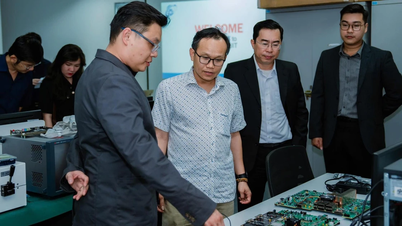


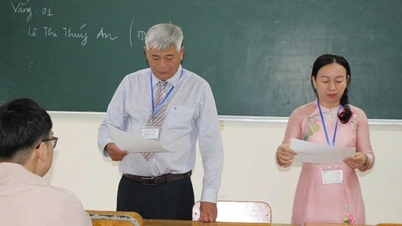

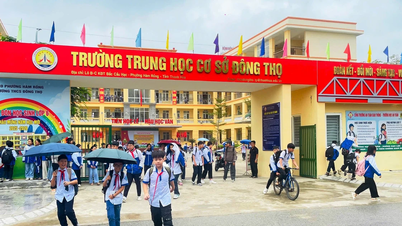
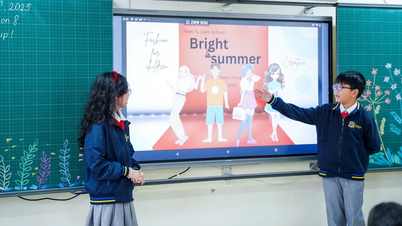



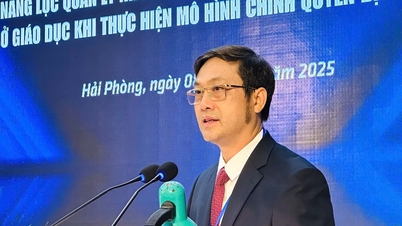












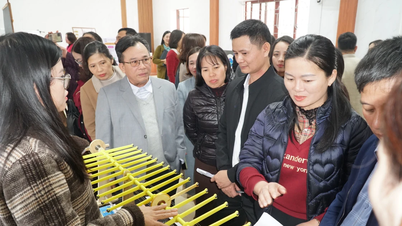


![[Photo] "Ship graveyard" on Xuan Dai Bay](https://vphoto.vietnam.vn/thumb/1200x675/vietnam/resource/IMAGE/2025/11/08/1762577162805_ndo_br_tb5-jpg.webp)






![[Video] Hue Monuments reopen to welcome visitors](https://vphoto.vietnam.vn/thumb/402x226/vietnam/resource/IMAGE/2025/11/05/1762301089171_dung01-05-43-09still013-jpg.webp)




































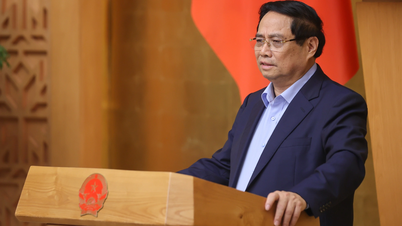








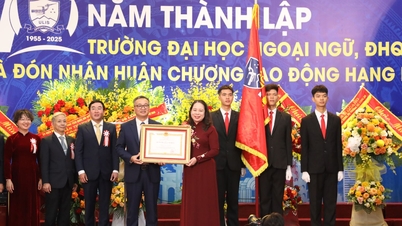





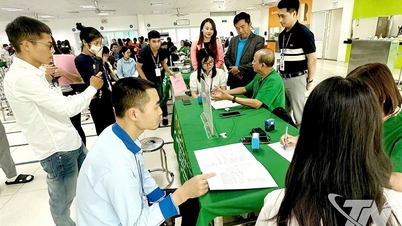




















Comment (0)